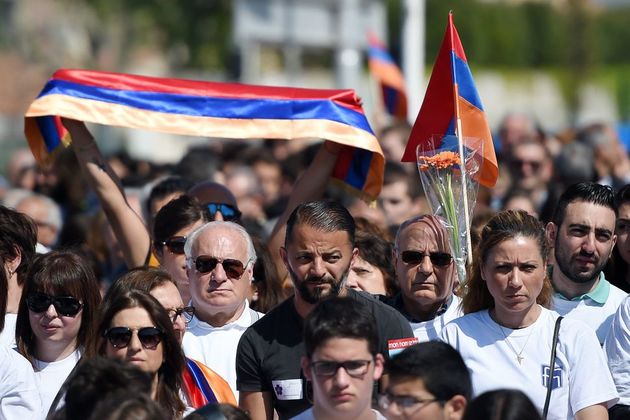The explosion at Beirut's port on August 4 claimed more than 150 lives, more than 6 thousand people were injured. According to Beirut city governor Marwan Abboud, damages range between 3 and 5 billion dollars. About 160 thousand Armenians live in Lebanon, most of which in the capital. About 15 Armenians died, more than 300 were wounded after a blast. Against the background of the tragedy, the Armenian diaspora's activities intensified, the cabinet members rushed to declare their readiness to accept refugees in the republic, since the Armenian community of Lebanon was facing the threat of a humanitarian catastrophe.
About 80% of the goods were delivered to Lebanon through the destroyed port. Officials did not mention on whose shoulders the costs of adaptation of refugees will be placed. Although the spread of the coronavirus pandemic is still depressing in Armenia, and the society is forced to pull the belts, the leadership of the republic does not miss the opportunity to use the diaspora-related events in order to secure Armenia's image of a collector of all foreign Armenians.
Until recently, Armenian politicians summed up disappointing results in the fight against infection, hoping for an autumn decline in cases and overcoming economic stagnation. But on August 14, Armenia's Chief Commissioner for Diaspora Affairs Zareh Sinanyan said that about 500 Armenians came from Lebanon to Armenia, as well as about a special package of documents aimed at ensuring that those who arrived could integrate into the republic.
The Syrian war, local conflicts in the Middle East, the explosion at Beirut's port, to one degree or another, were used by Armenian politicians to overcome the demographic crisis. However, even now it is not clear Zareh Sinanyan's words what future awaits the Lebanese Armenians, whether they will be granted citizenship. Not a word has been said about assistance in acquiring housing, in learning a language, or in finding a job. It seems that Armenia's current diaspora policy boils down to attracting Armenian refugees from all over the world without taking into account fundamental everyday needs and cultural perception. However, since it is unnatural for the Armenians of the Middle East to be in conditions of ideological enmity towards their neighbors or the Turkic world, the Armenian politicians perhaps do not pay attention to such peculiarities.
Some aspects of Zareh Sinanyan's current diaspora policy (the former mayor of the American city of Glendale) seem strange. One gets the impression that in the pursuit of figures and indicators of demographic growth, the Chief Commissioner for Diaspora Affairs does not think about creating an educational, social, cultural, economic and political system not implying full assimilation. It should be reminded that modern Armenia has no experience in building a multicultural society, and its policy is reduced to building a national state. What are the officials hoping for when they say that the republic should become attractive not only for Armenians, since today's Armenia cannot become the center of Armenian repatriation without the necessary intellectual, political and economic base?
Relying on a mechanical increase in the population and the fact that the refugees will agree to live in conditions that the citizens of Armenia refuse when leaving, seems ill-considered. Against this background, Sinanyan's words that the current authorities are actually starting a diaspora policy from scratch look like outright populism.
How are Armenian politicians going to improve the republic's attractiveness without solving the problem of population outflow? According to the UN Department of Economic and Social Affairs, more than 2000 people left the republic last year. Outflows have dropped comparatively this year, thanks to (if I may say so) the COVID-19 pandemic. The "revolutionaries" from the Pashinyan government, like their predecessors, stubbornly ignore Armenia's economic uncompetitiveness. However, instead of creating the necessary potential for attracting and integrating new immigrants, which could contribute to the growth of the market and an increase in the number of professions, it is easier for the Armenian officials to demonstrate an imaginary concern for refugees who are unlikely to want to connect their future with Armenia.






